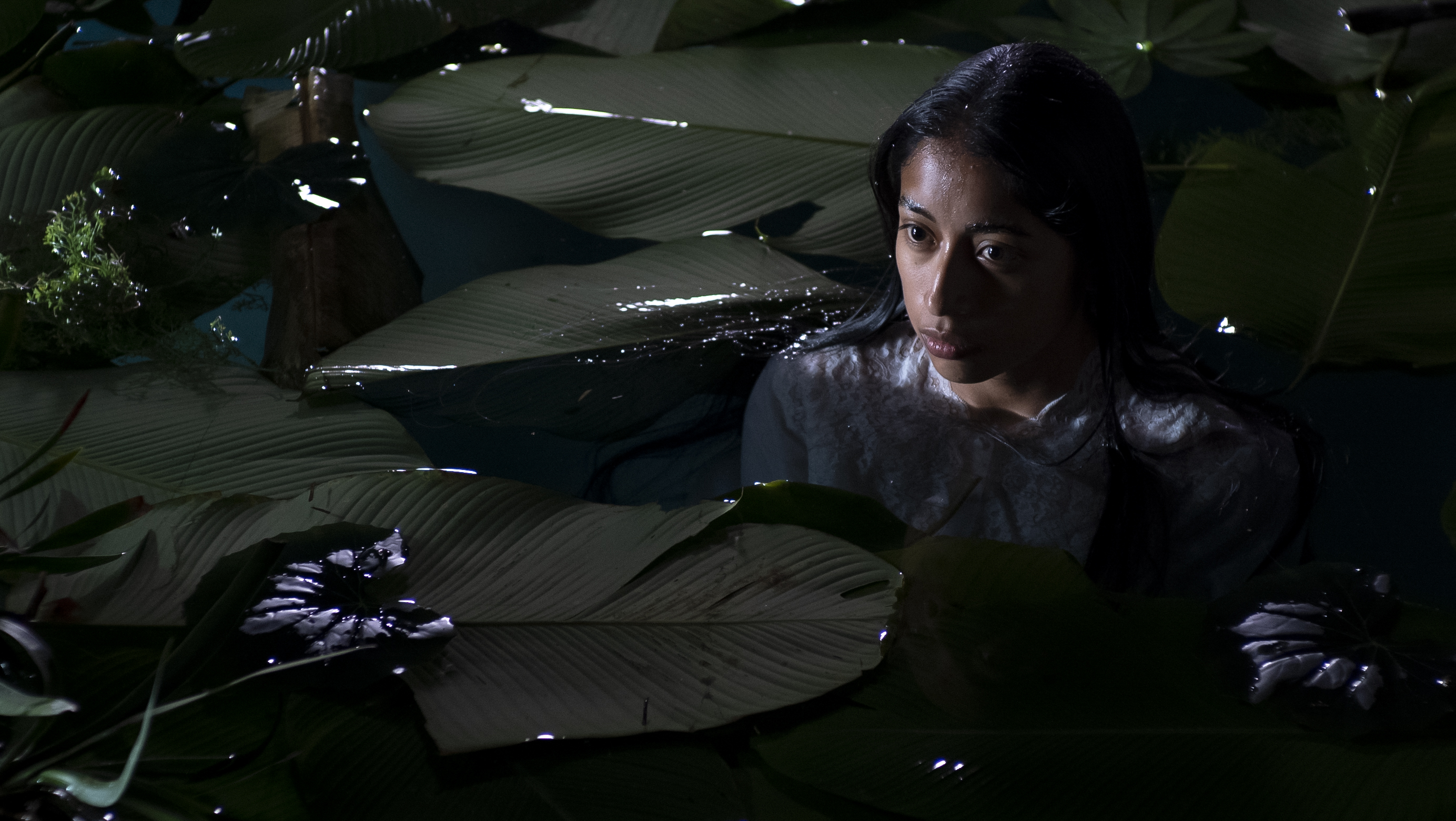Early Verdict
A muted horror tale that speaks volumes about cultural violence, heinous international crimes, and how mythology can give a voice to the voiceless.
Pros
- +
Familiar story, new take.
- +
Provides cutting commentary.
Cons
- -
A slower speed of horror.
Redemption, thy name is La Llorona.
Last year’s attempt to diversify the Conjuring Universe, The Curse Of La Llorona, is an example of how not to adapt another culture’s folklore for your whitewashed horror narrative. La Llarona director Jayro Bustamante, of Guatemalan origins, treats the tall-tellings of La Llorona as someone who’s grown with the “Weeping Woman’s” wailing cry always on his mind. Where Warner Brothers’ property aims for base-value theater scares, Bustamante attempts something more artfully unsettling. A haunted house film where sins of the past make for ghosts of the present.
La Llorona revolves around Enrique (Julio Diaz), an ailing Guatemalan ex-general who faces a national uprising when the court overturns his war crimes conviction. Enrique’s immediate family surrounds him, but outside his lavish gated estate are hordes of peaceful protestors who demand justice. It’s a lockdown scenario where no one enters or leaves, except for Alma (María Mercedes Coroy), a newly hired housekeeper. Enrique, sickly and paranoid given the circumstances, starts to suspect Alma may be more than just an impoverished villager in need of money. The closer Alma grows to Sara (Ayla-Elea Hurtado), the child of Enrique’s daughter Natalia (Sabrina De La Hoz), the more Alma resembles a supernatural legend told to Latin American boys and girls.
The backdrop of fervent protests works as this genius device that keeps Enrique, his “witch crafting” wife Carmen (Margarita Kenéfic), and others contained within crumbling walls. Not that the luxurious homestead shows structural dilapidation, but more how Enrique finds himself imprisoned by the very people he swore to serve. His crimes of indigenous genocide scroll for ages, including the rape of women and the slaughter of children as he hunted for guerilla opposition rebels. Bustamante's juxtaposition of themes is quite accomplished when showing the "old" Enrique versus his "current," more aware self.
La Llorona is a horror tale on multiple levels. The most obvious? Its stance on governmental oppression through the snide remarks Carmen still makes about those lower-class peasants who dare disrespect Enrique. The same citizens now hoisting posters of missing loved ones, presumed dead without nary an acknowledgment from Enrique’s camp.
The actual mythical curse of La Llorona tells of an abandoned wife who ends up drowning her two sons, then commits suicide when she cannot bear the guilt. God’s punishment is severe, eternally forcing the woman to hunt for her sons as a lost soul. Bustamante honors these whispered passages but tweaks La Llorona’s motivations to fit Guatemala’s violent internal conflicts that extinguished too many forgotten souls. Alma arrives as an angel of death (with frogs in-hand), but not in any conventional manner.
The introduction of Alma as a figure based on La Llorona is not ghastly, nor descriptively horrific. She’s a poor servant who appears for a work opportunity, but Bustamante is quick to connect visual dots. Maybe an opportune underwater zoom-in on Alma’s face, her hair floating like tentacles, as a reference to La Llorona’s drowned sons. Perhaps how Alma’s favorite game to play with Sara is a competition to see how long the young girl can hold her breath. We’re always waiting for the expected, but this is Enrique’s house of horrors to navigate. A decrepit creep whose past adultery habits and jettisoned morality keeps him awake like we’re supposed to feel sympathy for a man with blood on his hands that can never be washed away. It’s equally poetic and condemning, since wartime flashbacks paint a different picture as opposed to the frail man lying in hospital beds in need of constant medical attention.
There's an assault from all sides in La Llorona. From the audible, “There is no justice without peace!" chants, to Natalia’s indoctrination into her family’s reprehensible past (her husband vanished, and the answer seems to indicate it was not random). Don’t expect talentless jump scares or warped witchy faces after midnight. María Mercedes Coroy remains in “human” form as Alma, and her scare tactics favor sunken gazes that pierce through Enrique’s guarded gangsterish exterior. A siren, almost submerged except her eyes and above, taunting the man who so cruelly murdered civilians just like Alma. Bustamante draws out that cliched moment in films when someone’s life flashes before their eyes, showing Enrique and Carmen everything they’re responsible for destroying. Penance, mourning, and confrontation all at once.
La Llorona is many things you wouldn’t expect, and all the things The Curse Of La Llorona isn’t, including a culturally representative and gut-wrenching horror film. A country on the brink, and the thoughtlessness of leaders with protective egos. An age-old urban legend about a crying woman whose sobs you dare not hear—a tale of classism, war crimes, and merciless humanitarian abandon. Jayro Bustamante dwells on histories never to be forgotten in ways that will leave you breathless, albeit shaken or stirred versus outright terrified. Don’t be deterred by the “slow-burn” nature of La Llorona. This sensational dark fable defies how we define “horror” and “terror” beyond the most basic genre executions that Bustamante strives to avoid.
La Llarona releases on Shudder August 6th.
Matt Donato is a Rotten Tomatoes approved film critic who stays up too late typing words for What To Watch, IGN, Paste, Bloody Disgusting, Fangoria and countless other publications. He is a member of Critics Choice and co-hosts a weekly livestream with Perri Nemiroff called the Merri Hour. You probably shouldn't feed him after midnight, just to be safe.












